What to Know About Carrier Oils for Skincare
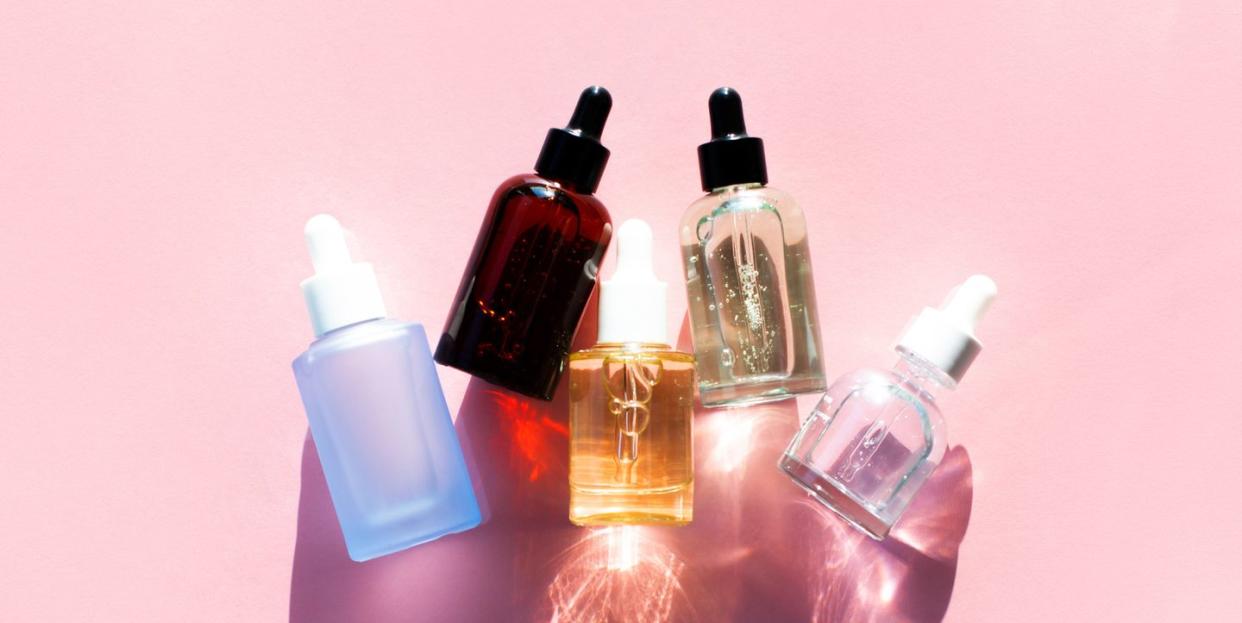
While moisturizers, serums and creams are frequently highlighted as integral parts of a skincare regimen, carrier oils are a little bit less known. They're natural oils that are extracted from plants, nuts or seeds that can be applied to the skin alone or mixed with essential oils. Carrier oils then “carry” the essential oil into your skin and deliver nourishing effects at the same time. Most carrier oils aren’t potent and are only lightly scented, therefore they don’t interfere with the essential oils.
What are the best carrier oils for my skin type?
There are many carrier oils, but you’ll want to figure out which is best for your skin type first. The Good Housekeeping Institute asked top dermatologists for everything you need to know about carrier oils, including which are best for use in skincare for every skin type so you’ll be on your way to having glowing and healthy skin. Used correctly, carrier oils can help lightly hydrate and seal moisture in skin.
Apricot Kernel Oil

According to Adebola Dele-Michael, M.D., a dermatologist in New York City, this is a safe go-to to use on your face, no matter what your skin type. Apricot kernel is made from apricot seeds and absorbs easily into skin. “It is very rich in vitamin A and nourishes the skin by keeping it hydrated,” she explains. Plus, it helps to soften and calm irritation, making it great for sensitive skin.
Argan Oil
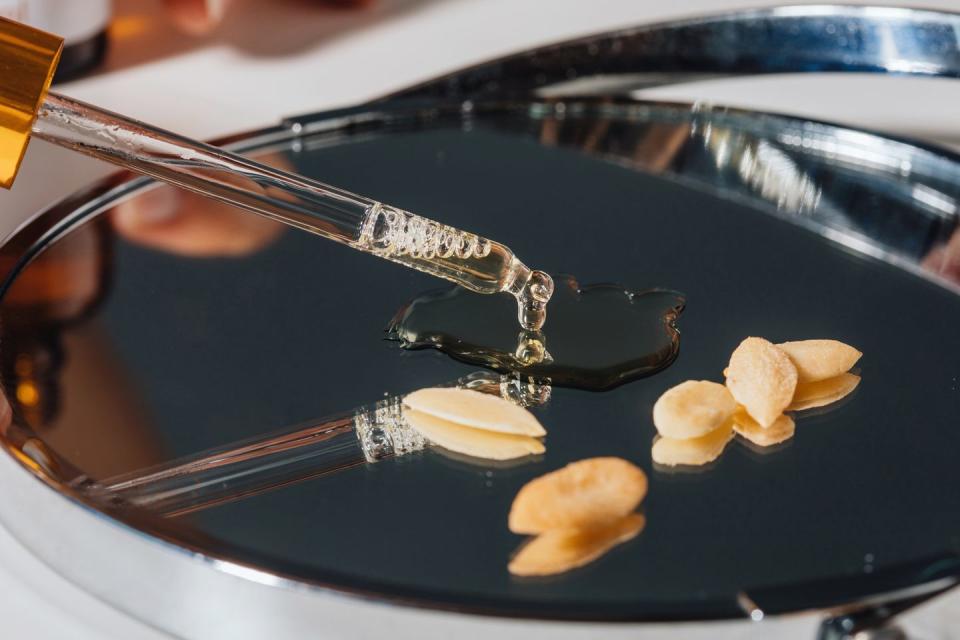
Argan is also a great carrier oil for the face, as it’s not too heavy or light, making it suitable for all skin types. “It’s rich in omega fatty acids, vitamin E, and linoleic acids,” explains Debra Jaliman, M.D., a dermatologist in NYC. “These work to lightly moisturize your skin, soften dry patches and help with rosacea.”
Rosehip Oil

Rosehip oil has strong moisturizing properties. Rosehip oil also has vitamins A, C and E and “helps to reduce the appearance of wrinkles and discoloration,” Dr. Dele-Michael adds, making it a great anti-aging oil. It's also known for its ability to penetrate deep into the skin, therefore boosting moisture and collagen levels.
Jojoba Oil

Oily and acne-prone skin types can sparingly use jojoba oil, which has anti-inflammatory properties. “Jojoba oil is very similar to the oils we have naturally on our skin, so it helps balance out the skin,” Dr. Jaliman says. There is vitamin E in jojoba oil, which is an antioxidant that “blocks free radicals from the body and aids in slowing down the aging process,” Dr. Jaliman explains. It aids in minimizing wrinkles and keeping skin looking youthful.
Marula Oil
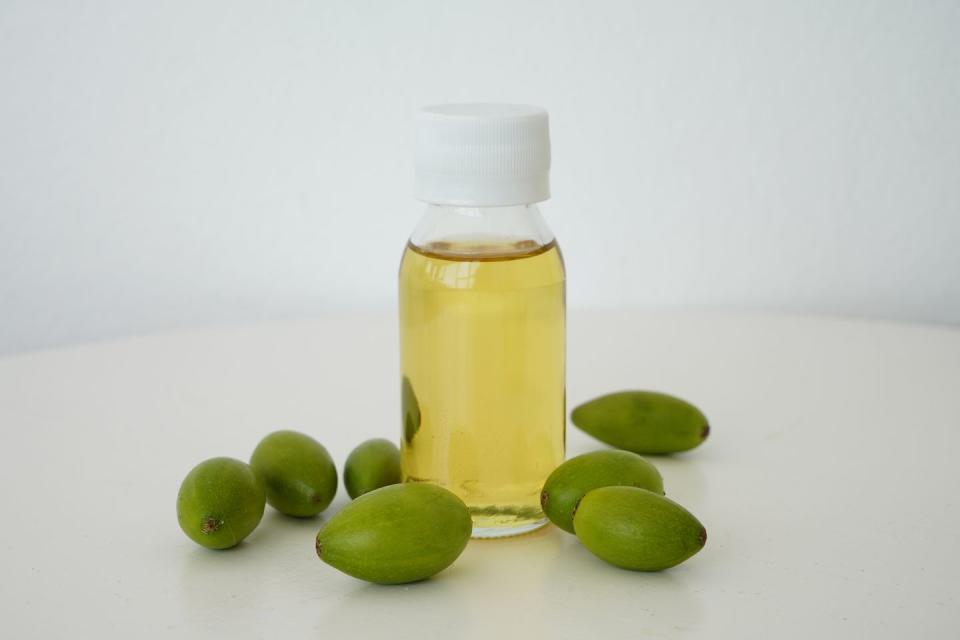
Marula oil is ideal if you’re looking to reduce redness and hydrate skin. “This soothing oil is rich in omega fatty acids," Dr. Jaliman says. "It’s not heavy, so you won’t feel greasy." It is also high in antioxidants and amino acids, which makes it beneficial for dry and aging skin.
Grapeseed Oil
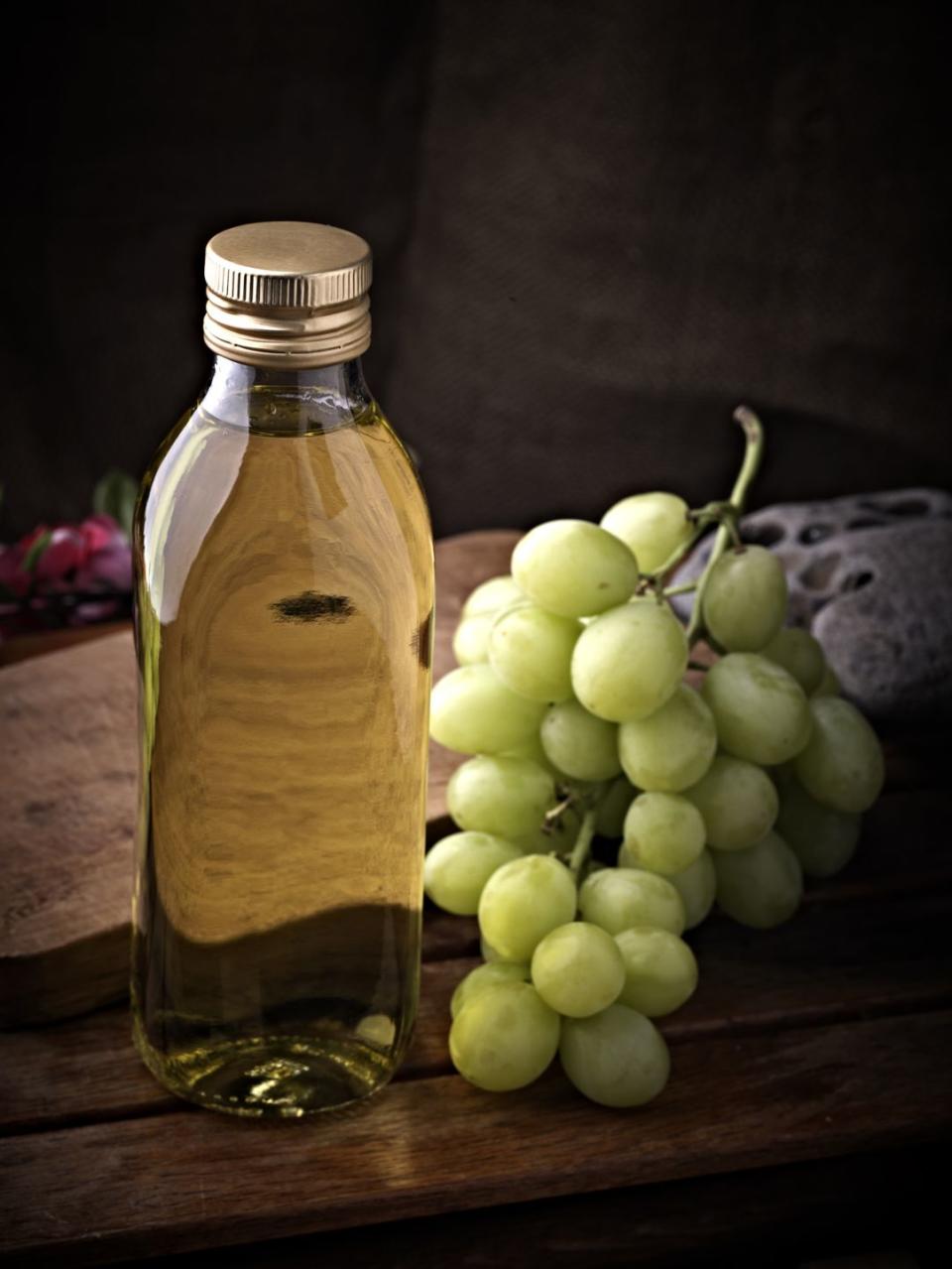
Grapeseed oil comes from grape seeds and allows for easy absorption into skin, thanks to its lightweight properties. “The vitamin E in grapeseed oil may help lessen the appearance of acne scarring,” Dr. Jaliman explains. “The linoleic acid in this oil helps with acne because of its anti-inflammatory and antimicrobial properties, so some people use it to treat breakouts.” It also improves moisture levels and keeps skin hydrated and plump due to its fatty acids.
Olive Oil
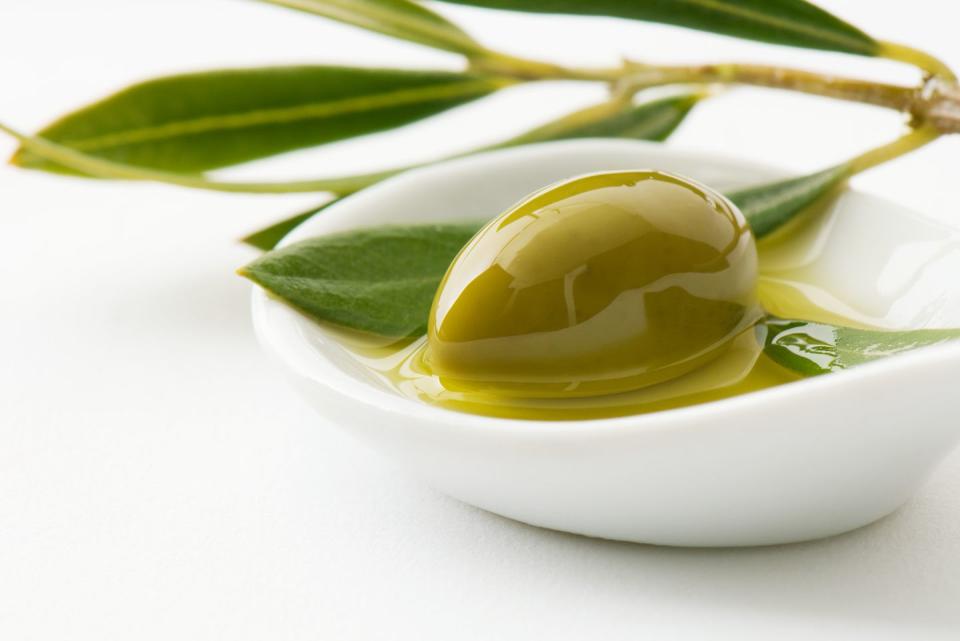
“[Olive oil] contains antioxidants, such as vitamin E and polyphenols," Dr. Jaliman explains. "When topically applied, it may help protect the skin from early aging and is super hydrating." Olive oil is not recommended to use if you have acne-prone skin, as it is a heavier oil. But since it's very moisturizing, olive oil is “an excellent option for those with dry skin,” Dr. Dele-Michael says.
Avocado Oil
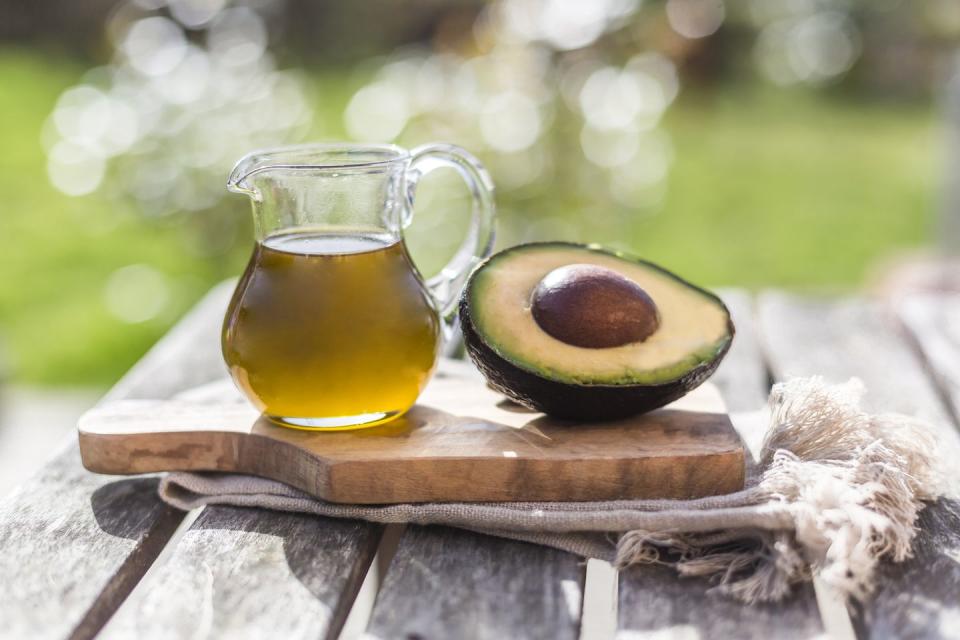
Similar to olive oil, avocado oil is heavy and thick. It is high in oleic acid, which is believed to help dry or damaged skin. It's a good carrier for dry skin remedies and can be really soothing and hydrating for eczema or irritated skin, but if you have oily or acne-prone skin, you'll want to stay away from using avocado oil as a carrier. It also contains vitamins A, D and E and helps to boost collagen production, which promotes elasticity and helps combat wrinkles.
Coconut Oil
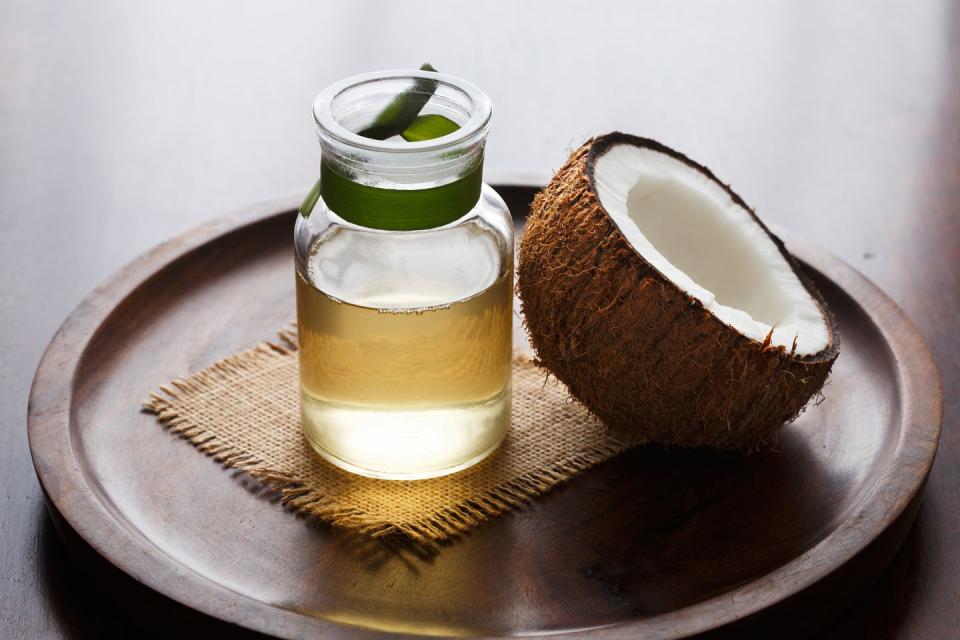
Coconut oil is packed with vitamin E, antioxidants and natural fatty acids that will help hydrate skin and nourish hair. But it's definitely another one to avoid if you have acne-prone skin.
Sweet Almond Oil
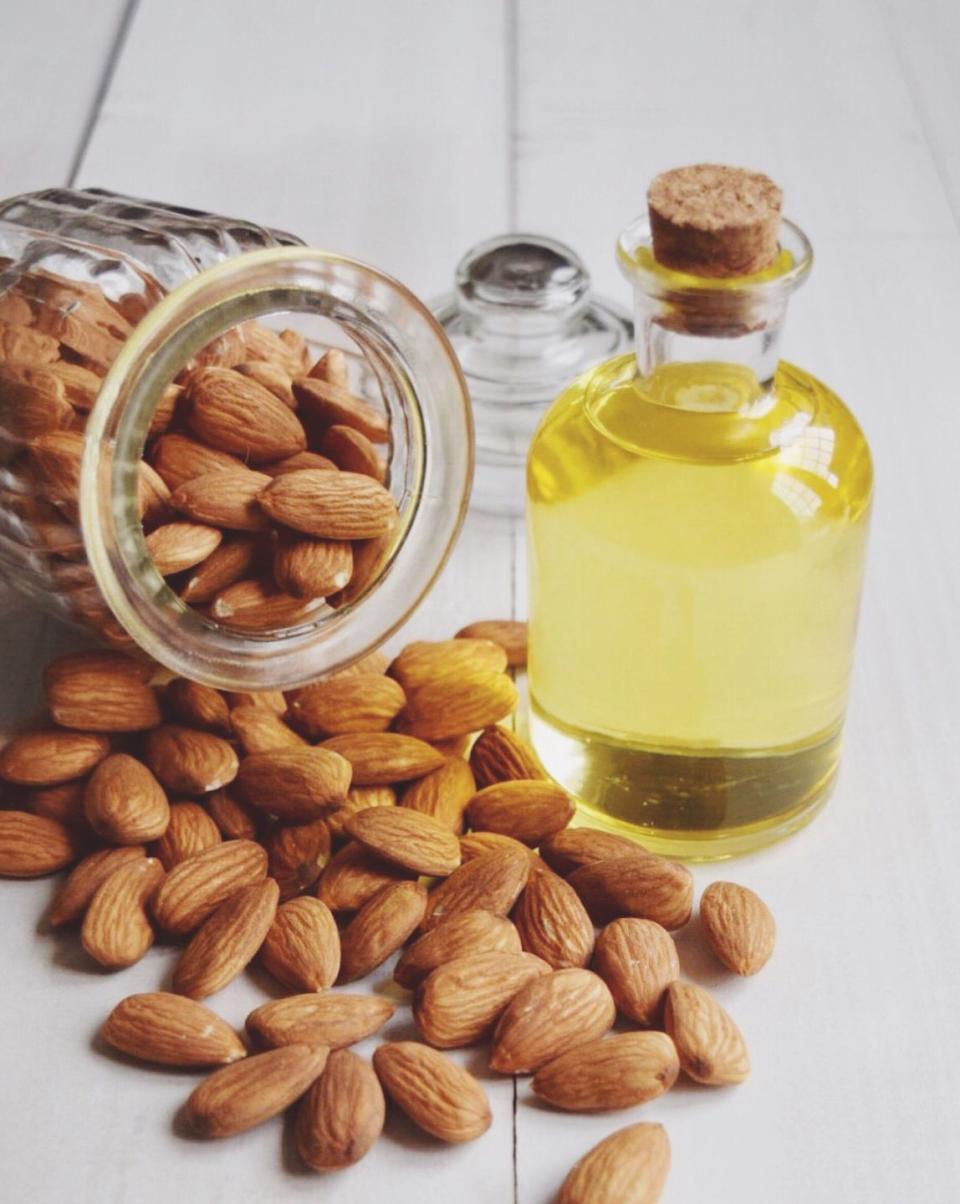
Packed with vitamin E and fatty acids, sweet almond oil is very moisturizing and penetrates deep into the skin quickly, making it a perfect match for dry skin. If you're wary of highly nourishing oils on your complexion, start by using it as a body oil before trying it on your face. (Bonus: It smells amazing!).
How to use carrier oils for skincare
"Some essential oils can be a bit stronger than others, so you should always check which essential oils you should dilute and with which carrier oil you should dilute it with," Dr. Jaliman says. "Dilution ratios depends on which carrier and essential oil you choose, so it's best to check online when you have chosen the specific oils." There are a variety of charts and calculators you can find to check how you should dilute certain oils.
Keep in mind that certain carrier oils can trigger allergic reactions and impact skin differently. If you're unsure what carrier oil is the best option for you, be sure to ask your dermatologist for recommendations. Then, start by testing a small hidden patch of skin first to see how your skin responds.
You Might Also Like

